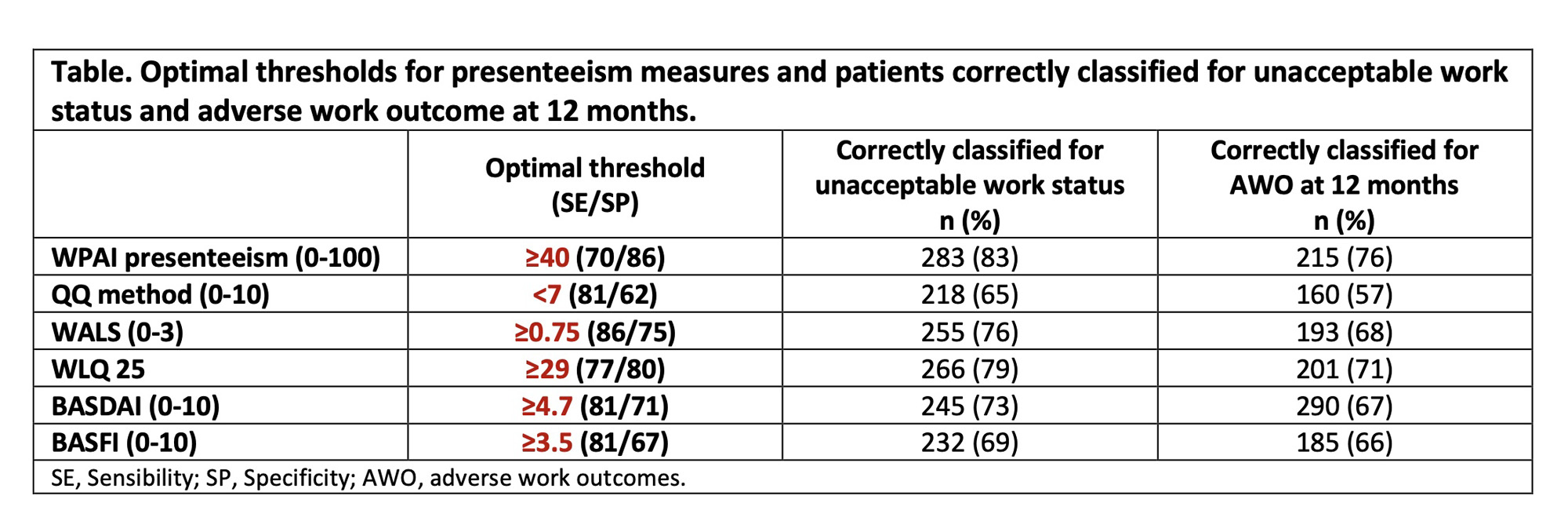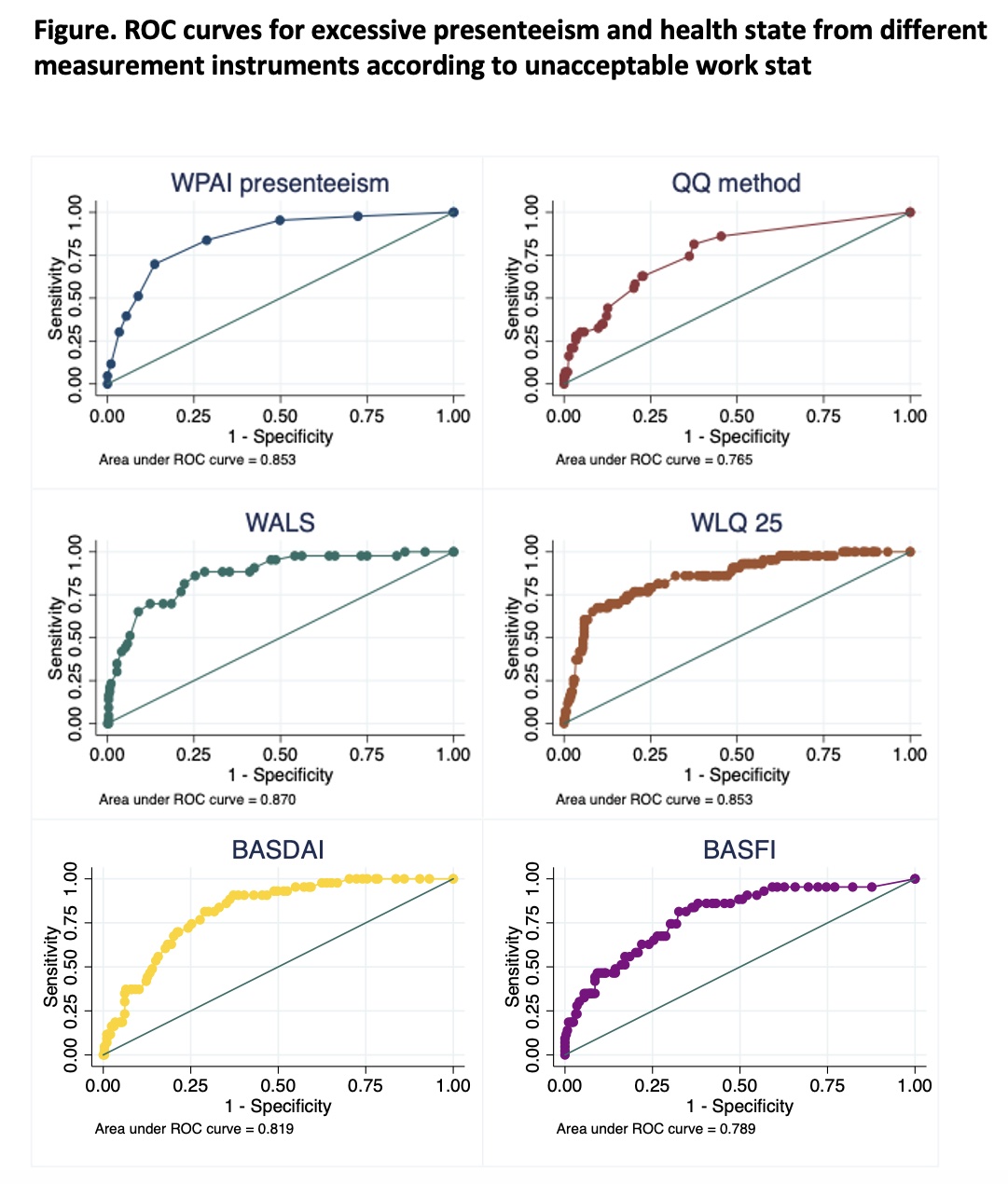Session Information
Session Type: Poster Session B
Session Time: 9:00AM-11:00AM
Background/Purpose: Presenteeism is associated with lower work satisfaction and future sick leave in axial spondyloarthritis (axSpA). It is generally assessed as a continuous variable; however, despite a lower precision, categorical variables are more meaningful in routine practice.
Our objectives were: 1) To identify thresholds of presenteeism instruments that reflect unacceptable work status in patients with axSpA and whether those thresholds could predict future adverse work outcomes, 2) to compare the performance of these thresholds with thresholds from traditional outcomes for axSpA and 3) to understand whether thresholds are stable across contextual factors.
Methods: We used data from the 1-year multinational prospective study on Patient-Reported Outcomes in Employment Study in Ankylosing Spondylitis (AS-PROSE). Thresholds to determine when patients consider themselves in ‘unacceptable work status’ were calculated at baseline for 4 presenteeism instruments (Work Productivity and Activity Impairment questionnaire -WPAI-, Quality and Quantity method -QQ-, Workplace Activity Limitations Scale -WALS- and Work Limitations Questionnaire -WLQ 25-); and for BASDAI and BASFI.
We performed receiver operating characteristic (ROC) analysis using as external criteria the Patient Acceptable Work State (PAWS) question 1, addressing ability to perform your current job satisfactorily. We used different approaches (75th percentile, Youden index, Liu method, nearest to 0.1) to determine the optimal cut-off, while balancing over-under diagnosis. Temporal validation was assessed by applying the thresholds in different timepoints. Influence of context (age, gender, nature of work, symptom duration) was explored in subgroup analyses.
Finally, accuracy of thresholds to predict “future adverse work outcome” throughout 12 months (defined as sick leave or long-term disability) was assessed.
Results: A total of 366 patients were included: 72% males, mean age 43 (SD 10), with a mean symptom duration of 18.2 (11) years. 15% of the patients considered themselves in an unacceptable work status, and 6% had at least one adverse work outcome during the 12 months.
The optimal thresholds of the presenteeism instruments that reflect an unacceptable work status are expressed in the table. BASDAI and BASFI performed similarly to the presenteeism instruments (Figure). Across numerous contextual factors the thresholds were stable, expect for some underdiagnoses among women and persons with a physical loading job by WPAI-, QQ- , BASDAI- and BASFI-thresholds.
The threshold accuracy to predict adverse work outcome over 12 months was similar across all the presenteeism instruments (68-76% of correctly classified patients), except for the QQ (< 60%). BASDAI and BASFI also performed slightly worse (66-67%).
Conclusion: Thresholds for presenteeism and health status representing unacceptable work status have been established, showing stability across contextual factors. Threshold for QQ were insufficiently accurate and for BASDAI and BASFI were slightly worse although acceptable. The capacity of these thresholds to predict future adverse work outcome was somehow lower for all instruments.
To cite this abstract in AMA style:
Capelusnik D, Ramiro S, Nikiphorou E, Maksymowych W, Magrey M, Marzo-Ortega H, Boonen A. Defining Thresholds of Presenteeism Measures for Unacceptable Work Participation in axSpA [abstract]. Arthritis Rheumatol. 2023; 75 (suppl 9). https://acrabstracts.org/abstract/defining-thresholds-of-presenteeism-measures-for-unacceptable-work-participation-in-axspa/. Accessed .« Back to ACR Convergence 2023
ACR Meeting Abstracts - https://acrabstracts.org/abstract/defining-thresholds-of-presenteeism-measures-for-unacceptable-work-participation-in-axspa/


